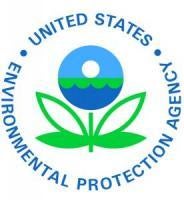WASHINGTON – The U.S, Environmental Protection Agency is awarding grants totaling $550,000 to five organizations to implement new approaches in managing bed bug problems. These grants will be used in states and communities where bed bug pressures are significant but resources to address the problems are limited. Lessons learned from the grants will be available for use by other communities.
-
University of Missouri St. Louis will work within communities of high poverty, minorities, and immigrants. The work will translate existing information about bed bug control, prevention, identification and resources to a smartphone-friendly website.
-
Texas AgriLife Extension Service, Texas A&M University will conduct an Integrated Pest Management (IPM) program at homeless shelters in Texas. The project will demonstrate the effectiveness of current best management practices, using IPM for bed bugs.
-
Maryland Department of Health and Mental Hygiene will develop and provide training as well as technical and material support to residents, service providers and retail operators in the 12 poorest zip codes of Baltimore City and county health offices throughout Maryland. The grant will also provide training to the migrant workers of Caroline County, who are especially vulnerable to bed bugs. Efforts will promote reduced-risk and non-chemical methods of control that residents can use in their own homes.
-
Rutgers University will implement a statewide bed bug educational outreach program for low-income communities in New Jersey. The grant also will help implement a train-the-trainer program in at least 50 low-income communities in New Jersey, assist an affordable housing community in setting up an effective and sustainable community-based model bed bug IPM program. The IPM model will focus on community participation, early detection, maximize cultural and non-chemical control practices, and use of low-toxicity insecticides to manage bed bug infestations.
- Michigan Department of Community Health will develop an education program focusing on the prevention and treatment of bed bug infestations for public health professionals and community partners with the goal of preventing pesticide misuse. The program will target the most vulnerable of Detroit's communities for outreach and education efforts.
Infestations of bed bugs have spread to many cities around the United States in recent years. As part of the Federal Bed Bug Workgroup, EPA helped develop a national Bed Bug Summit in early February. The agency has worked with various federal agencies to explore and develop techniques for combating the influx of bed bugs. The bed bug grants are a further step in educating consumers and professionals about the pests.
More information on the grants: http://epa.gov/bedbugs/grant-awards.html
More information on bed bugs: http://www.epa.gov/bedbugs/



 />i
/>i

